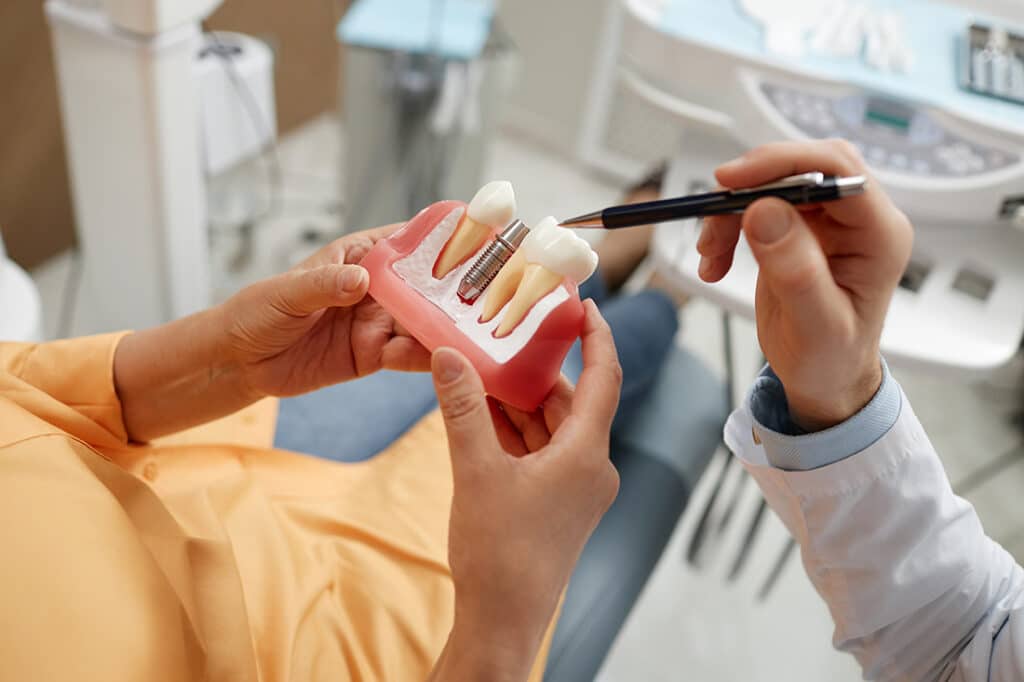Nashua, NH Dental Implants Restoration
If you’re considering dental implants to replace one or more missing teeth, you’re likely to have some concerns. Are dental implants the best option for you? How much do dental implants cost? Are you a good fit for them? Will your dental implants blend in with your natural teeth?
We can help you get an answer to any of those questions and anything else you may need to know about dental implants in Nashua, NH. Just get in touch with us today for an initial consultation.
What are dental implants?
Dental implants are among the most popular aesthetic dentistry services and products. They are tooth-like materials that are permanently affixed to the gums to replace lost teeth
Dental implants are similar to dentures, but they are distinct in that they are permanently attached to the gums and cannot be removed without the help of a dentist. Oral implants are usually constructed of titanium, which is one of the few metals that the human body can accept.
What are the main benefits of dental implants?
There are numerous reasons dental implants are such a popular choice in cosmetic dentistry. Here are just some of them:
Are You a Candidate for Dental Implants?
Not everyone is a candidate for a dental implant, however. For a successful implant to take hold, a candidate must have proper bone density and have a strong immune system. All dentists will recommend that proper oral health should be maintained however in the case of dental implants, strict oral hygiene should be upheld to avoid the risk of disease. Dental Implants are so well designed that they mimic the look and feel of natural teeth. Implants are usually made of a synthetic yet biocompatible material like metal or ceramic.
Surgery is necessary to prepare the area for an implant and place the implant in the mouth. Following the procedure, a period of time is required for the implant to take hold and for bone tissue to build up and anchor the device. In some cases, metal posts are inserted into the implant during a follow-up procedure to connect the tooth. Because dental implants require surgery, patients are administered anesthesia and, if necessary, antibiotics to stave off infection following the procedure. Like any restoration, implants require diligent oral hygiene and proper care to ensure they last a long time.
Dental Implants FAQ
If you want to know more about how dental implants can enhance your smile, get in touch with us to schedule an initial consultation.
Want to learn more about Dental Implants from Pearl Dental Associates?
Call our Nashua, NH office at (603) 883-6010 to book an appointment today!


